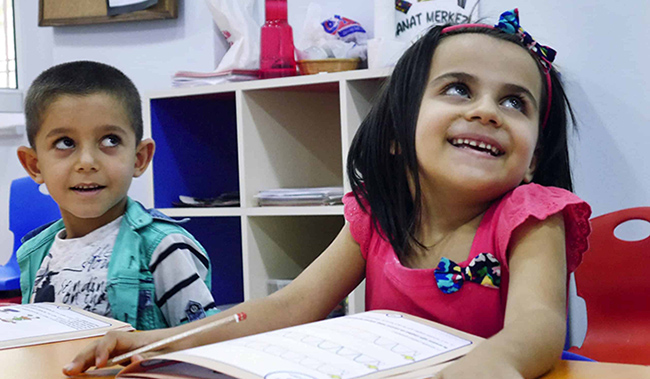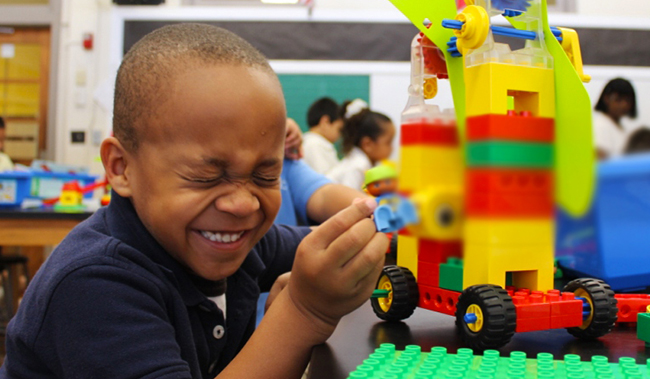Help for workers and small businesses
The COVID-19 pandemic produced economic hardship around the world, with vulnerable communities feeling the effects. In the U.S. economic disparities in the United States widened. In July 2021, 42% of Black people and 37% percent of Latinos reported difficulty paying for household expenses, compared to 22% of white people.[3]
As the immediate crisis of the pandemic fades, funders can help rebuild a system that addresses the root causes of wealth inequality and makes workers around the world more resilient to future economic shocks. To meet this opportunity, funders should leverage strategies that include bold solutions and address public policies. Investing in an inclusive economic recovery will not just reduce material hardship, but will also complement efforts to accelerate learning loss recovery, improve mental health, and create safer communities in the U.S. and abroad
Here’s how to help.
What Donors Can Do
Donors can support basic needs by funding efforts that making high-quality child, elder, and family care available so that workers can work and training and retraining workers to both thrive and meet the needs of the modern economy.
Below you’ll find a description of each strategy, profiles of nonprofits employing these strategies and additional nonprofits to consider.

Make High-Quality Child, Elder, and Family Care Available
During the pandemic, the childcare infrastructure faced a dual crisis. Gaps in childcare led many parents to leave the workforce to care for children and other family members. Nearly all fathers have now returned to the labor force, but mother’s labor force participation remains 2.8 percentage points below their November 2019 rate.[1] At the same time, as of December 2020, the childcare workforce is still 17% smaller than it was before the pandemic began.[2] Care workers continue to be undercompensated — 20% of care workers live in poverty and 40% rely on public assistance.[3]
Internationally, women and girls have faced much more economic consequences as a result of the pandemic. Women make up almost 2/5 of the global labor force but have suffered more than half of total job losses from the crisis. That has left them 1.8 times more vulnerable to the pandemic’s impact than men. Such unequal burdens are obstacles to an effective, sustained recovery. They undermine every country’s ability to prepare for future disasters, and create additional roadblocks to achieving the United Nations’ Sustainable Development Goals.
Funders can help by advancing family-friendly workplace policies and increasing the supply, quality, and wages of care workers. These investments would allow more women to return to work, and provide outsized benefits to Black women and Latinas in the U.S.[4] At the national or state level, look for organizations that include domestic workers in their board and leadership and have the capacity to adapt to quickly changing policy environments.

Train and Retrain Workers
UN labor experts predict that global unemployment will increase to over 200 million people next year, with women and young people impacted the most. In the first half of 2021, regions affected the most include Latin America, the Caribbean, Europe, and Central Asia. In the United States, the COVID-19 recession has impacted workers of color, workers in the hospitality industry, and workers with less education the most.[1][2] The June 2021 unemployment rates are 9.2% for Black workers, 5.8% for Asian workers, and 5.2% for White workers — all higher than their respective rates in January 2020.[3]
Workers in low-wage positions also have the most difficulty finding better-paid jobs — one study found that in a given year, only 5% of low-wage workers were able to find a higher-skill, higher-paying job.[5] Equitable recovery requires a workforce development strategy that supports workers as they transfer their skills to higher-quality employment in new industries as automation changes the labor market.[6]
Donors can help workers regain their place in the economy by supporting training and employment-connection programs. Look for training programs that are free or include only a commitment fee, include high-quality training for in-demand professions, and have a network of employers who recruit from the program. Programs should also provide continued professional development to participants once they have completed the program. Training programs can stand alone, or take place in partnership with community colleges or trade unions.
Opportunities for Impact
Nonprofits Making an Impact
To help donors see what an effective program can look like, we highlight two nonprofit organizations which are advocating for and retraining workers for secure livelihoods.
Organizations to Support
Here we share a range of organizations in the U.S. and internationally that are applying successful job training and child and family care support . We sourced these organizations from recent applied research, past guidance, and partnerships with Campaign for Grade Level Reading, Greenlight Fund and Lipman Family Prize.
Make high-quality child, elder, and family available
All Our Kin trains, supports, and sustains family child care educators to create opportunity and give children and families have the foundation they need.
AppleTree Institute offers a comprehensive instructional model for pre-K children called Every Child Ready (ECR) that includes curriculum and resources to improve instruction, coaching, teacher professional development, and assessment through partner schools and community-based organizations.
AVANCE assists under-resourced families of young children using a two-generation education and relationship-building methodology to boost family outcomes as parents, employees, and citizens. The Texas-based organization runs Early Head Start and Head Start programs for early childhood education.
The Child-Parent Center program (CPC) provides comprehensive educational, family support, and healthcare services to economically disadvantaged children from ages 3-9.
Children’s Literacy Initiative partners with school districts to train and coach preschool through third grade teachers in the most effective literacy techniques, typically working with a school for three years.
Early Learning Ventures provides tools and resources that allow child care providers to streamline their business operations to give them more time and resources for caring for children.
Train and retrain workers
Byte Back provides free classes to students to prepare them for careers in tech in Baltimore, MD and Washington, DC.
Coded by Kids is a Philadelphia-based nonprofit providing free tech education programs to inner-city youth.
Computer Mentors connects people working in the tech industry to help train young people most impacted by the digital divide in Tampa Bay, Fl.
Computing for All helps people who are under-represented in the IT industry in Seattle, WA, by offering training, mentoring and hands-on work in several different career tracks to high school juniors and seniors. Computing for All also partners with local businesses to give students first-hand experience in the industry.
Center for Employment Opportunities (CEO) offers individuals just coming home from prison the ongoing support necessary to build career capital and financial stability.
Generation transforms education to employment systems in countries around the world to prepare, place, and support people into life-changing careers that would otherwise be inaccessible.
Grads of Life is a public awareness campaign that persuades businesses to hire nontraditional candidates.
READI Chicago connects people most highly impacted by gun violence to paid transitional jobs, cognitive behavioral therapy, and wrap-around support services to help them create a viable path for a different future, and to help reduce violence in the city’s most impacted neighborhoods. READI Chicago is a two-year engagement – 18 months of a paid transitional job, cognitive behavioral therapy and support services, plus an additional six months of follow-up case management and coaching support to help participants successfully transition to unsubsidized employment.
The Welcoming Center runs the FOCUS program which provides hybrid learning to support job training and entrepreneurship among underserved, low-income and immigrant populations in Philadelphia.
Year Up moves low income young adults towards postsecondary education or employment by providing six months of skills education and a six-month corporate internship.


